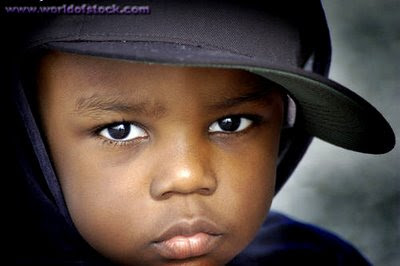
"The only neurobiological condition inherited by boys that affects later violence
is they have a smaller corpus callosum, the part of the brain that connects the
right and the left hemisphere.16 The larger corpus callosum of infant girls
allows them to work through trauma and neglect more easily than boys.
Furthermore, boys who are abused had a 25 percent reduction in sections of the
corpus callosum, while girls did not.17 This means boys actually need more love
and caretaking than girls as they grow up. If they do not receive enough
interpersonal attention from their caretakers they suffer from damaged
prefrontal cortices (self control, empathy) and from hyperactive amygdalae (fear
centers), their corpus callosum is reduced further, and they have reduced
serotonin levels (calming ability) and increased corticosterone production
(stress hormone). All these factors make them have weak selves, reduced empathy,
less control over impulsive violence and far more fears than girls.18"
So as we see, for neurobiological reasons, boys are in greater need of love and caregiving than girls. This brings up the question of whether they actually receive such greater love and caregiving:
"The central psychobiological question, then, is this: Are boys given more loveSo as one might clearly suspect, boys are typically shown less affection and given less support than girls. Such lesser affection probably comes from both mothers and fathers, yet that which comes from mothers is most important:
and attention than girls by their caretakers in order to help them offset their
greater needs? The answer, of course, is just the opposite: boys are given less
care and support, from everyone in the family and in society, and they are
abused far more than girls, so by the time they are three years of age they
become twice as violent as girls.19 Boys’ greater violence by this time,
including their propensity to form dominance gangs and to endlessly “play war,”
are the results of their greater abuse and distancing by adults and being
subject to demands to “grow up” and “be manly” and “not be a crybaby” and not
need attachments—attitudes taught by their parents, teachers and coaches. By age
four boys’ play is full of provocations that test their self-worth: “At 4 years
of age, girls’ insults to one another are infrequent and minor…Boy/boy insults,
however, are numerous and tough.”20 The so-called “aggressiveness” usually
ascribed to boys is in fact wholly defensive, as they try to ward off their
greater feelings of insecurity and hopelessness.21 It isn’t “aggression” males
display; it’s bravado—defensive testing and disproof of their fears."
"The mother, of course, is the focal point of this widespread distancing andHere is more good information on the subject:
insecure attachment pattern. High levels of violence and of testosterone have
been shown to be associated with poorer relationships with mothers, not fathers,
since mothers are the primary caretakers in most families (even in America
today, fathers spend only an average of eleven minutes a day with their
children).22 It is not just genetics but more importantly maternal environment
that Tronick and Weinberg blame when they see from their studies that “Infant
boys are more emotionally reactive than girls. They display more positive as
well as negative affect, focus more on the mother, and display more signals
expressing escape and distress and demands for contact than do girls.”23 This is
because from infancy boys are expected to “just grow up” and not need as much
emotional care as girls—indeed, boys are regularly encouraged not to express any
of their feelings, since this is seen as “weak” or “babyish” in boys.24 While
mothers may sometimes dominate their little girls and expect them to share their
emotional problems, they distance their boys by not making contact with them and
expect them to “be a man.” This begins from birth: “Over the first three months
of life, a baby girl’s skills in eye contact and mutual facial gazing will
increase by over 400 percent, whereas facial gazing skills in a boy during this
time will not increase at all.”25 Boys grow up with less attachment strengths
because careful studies show that mothers look at their boys less, because both
parents hit their boys two or three times as much as they do their girls,
because boys are at much higher risk than girls for serious violence against
them, and because boys are continuously told to be “tough,” not to be a “wimp”
or a “weakling,” not to be “soft” or a “sissy.”26"
So how does all of this relate to the excessive violence that is so prevalent among black men? Is the lack of affection and support received by black men greater than that of other men. One study entitled Parent-child Play: Descriptions and Implications, does address this basic idea:"Perhaps because boys’ needs are greater than girls’, harried and often depressed
mothers give them less love and attention from birth. Careful studies reveal
that mothers look at and talk more with their daughters than with their sons,
spend more time interacting with them, smile more at their daughters than at
their sons, direct more orders and prohibitions toward their sons, and use more
severe disciplinary styles and more shaming techniques toward them.50
If they are ashamed of what their mothers have taught them they are and by their continuing need for her understanding, they “learn to suffer quietly, in retreat behind the mask of masculinity [and] cover up the more gentle, caring, vulnerable sides of themselves.”63 If, of course, they are brought up with love and care, like my sons—and probably like yours—they grow up neither violent nor war lovers. But abandoned and abused boys regularly hide their shame and fears behind a defensive fantasy of grandiosity, dominance and violent bravado.64 The violence they exhibit both kills other Bad Selves (called “enemies”), who like themselves are seen as both angry and weak, plus it provokes the violence of others, inviting self-destructive, suicidal responses. Confrontation, “carrying a chip on their shoulders,” is their defense against admitting that they feel weak, rejected and worthless.65"
Blacks:
Cuban-Americans
1) Infants are doted on; much attention to food and clothes.
2) But 'most black women believe the children are easily spoiled by too much attention including being held, carried, and praised.'
3) Infants are often left unattended for long periods of time. Black infants forced to be autonomous earlier than other groups.
4) Teenage pregnancy is tolerated but mother soon becomes disinterested in baby and grandmother takes over most of the care.
5) High levels of physical discipline, including 'shaking and spanking, often with belts and switches.'
1) Teenage pregnancy not sanctioned. High rate of abortions.
2) Infants are the center of attention of entire extended household.
3) Infants are carried everywhere and rocked a great deal, are scolded infrequently, and are seldom physically punished.
More details of the study can be found here. The trends shown by the study applies to both teenage and adult mothers.
So this leaves the final question of whether there is a difference between the affection level given black girls and black boys. For a couple of decades, the idea that black mothers love their boys and raise their daughters has made it into black folklore, despite there being no empirical evidence to support this notion. One study finally takes a look at it with the following results:
'While no differences were found in the way that the mother uses control with her children, the mother did appear to have a more warm and guiding-producing relationship with her daughter. This finding runs contrary to the stereotype that the “African American mother ‘loves’ her son, but ‘raises’ her daughter.”'
So the evidence seems to say that boys are shown less affection and support than girls, black mothers show less affection and support to their young children than other groups and black boys receive less affection and support than black girls. While numerous other factors certainly are among the reasons why black males today show so much excessive violence, evidence does support that lesser attention and affection from their mothers at an early age could play a major role in this.
































